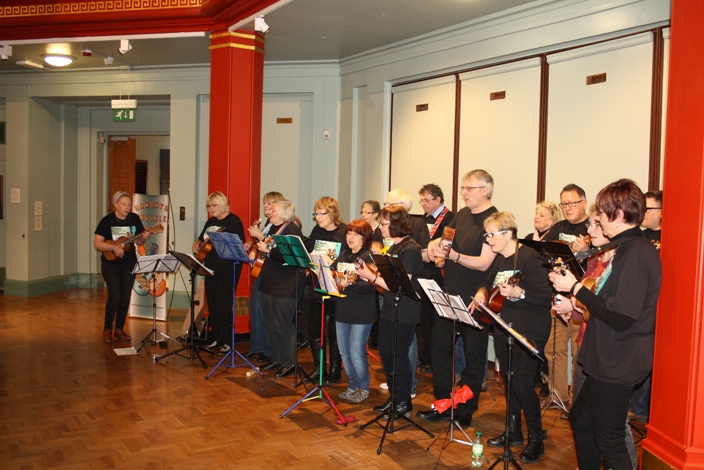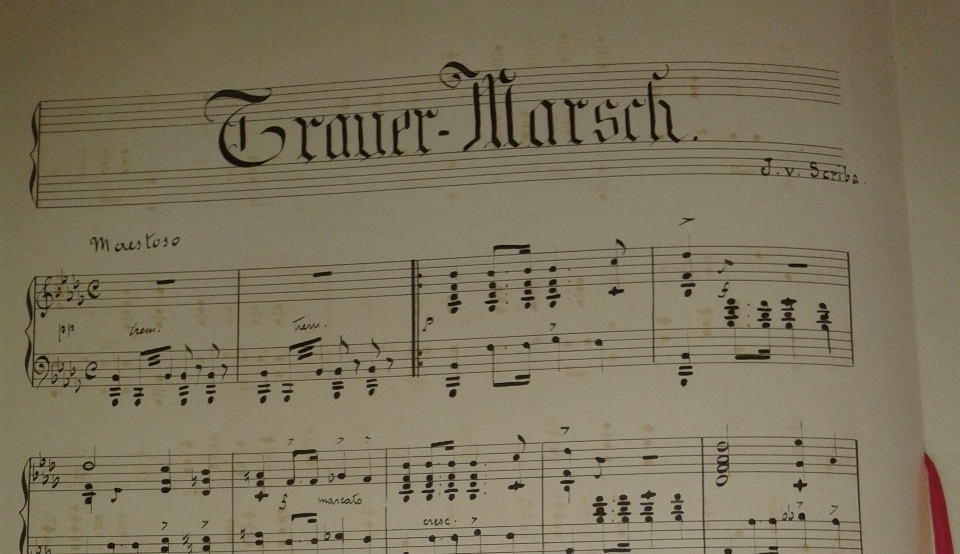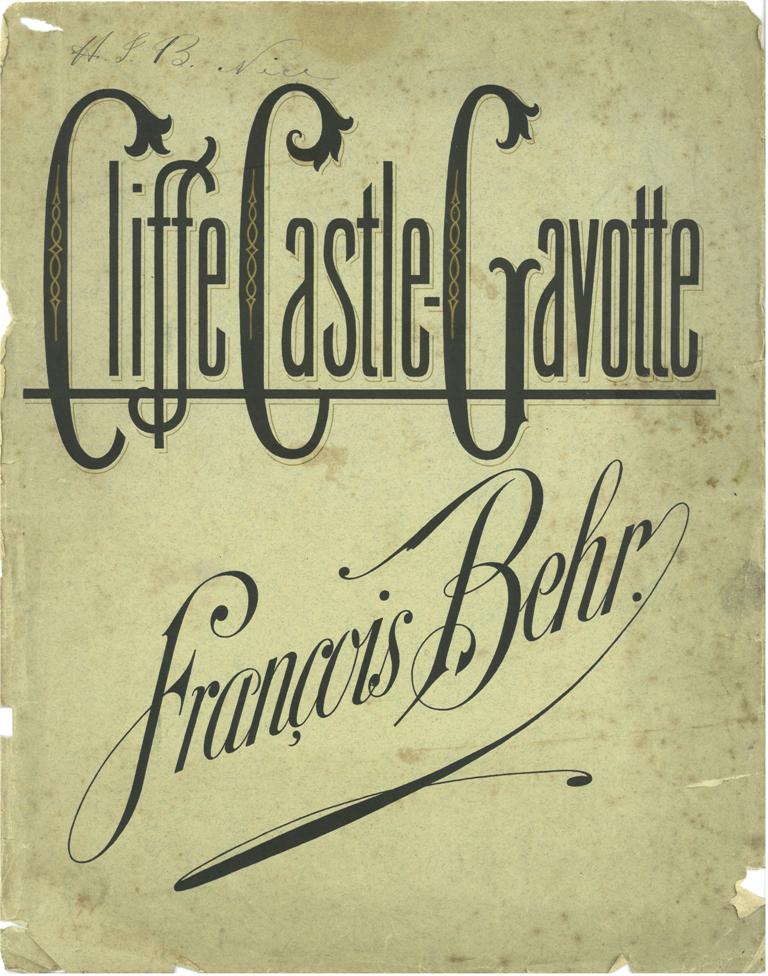Our Community Music Events intern, Oscar has agreed to write the latest blog about the the project he’s been woking on:
Here at Cliffe Castle we are the middle of hosting a series of free live music events, taking place in the Bracewell Smith hall within the museum building itself. This is a unique opportunity to bring music back to a building with an incredible musical heritage. Since January our audiences have been entertained by a wonderful variety of acts, from Irish folk to a brass band, solo singer-songwriters to 20-piece choirs, and even a small orchestra!
It’s not every day you get to enjoy live music in what is not only a historic building like Cliffe Castle but also very much a museum and not a traditional music venue; there is no stage or specially prepared room for the performances The Bracewell Smith hall is a central part of the museum and houses exhibits just like anywhere else in the building, so part of the unique experience, and a unique challenge, of these performances is that it takes place in that environment.

The hall also offers its stunning acoustics to the event. The smallest noise reverberates and is and amplified by the room’s octagonal layout and high ceiling. Large ensembles sound grandiose and small acts sound commanding while remaining intimate and personal. Even though we have struggled with the echoes reducing the clarity of speech, it’s a small price to pay to get the music sounding so rich and full.

One very exciting part of all this is getting to look into the aforementioned musical heritage of the building and the Butterfield family who lived here. Something we’re really hoping to be able to do is work some of the music that is connected to the castle into the events and so far there have been two very interesting pieces of music we’ve managed to unearth.
The first is titled “Grauer-Marsch” (“Grey March”) and written in 1866 by Baron von Scriba, a friend of the Butterfield family. The piece was dedicated to the families of the victims of the Battle of Langensalza, fought that year in what is now Germany. It also happened to be the first deployment of medical personnel using the “Red Cross” – a precursor to the International Red Cross we know of today.
It is a hand-written manuscript, some notes are actually written the wrong way round from how they would be traditionally, and as the name and dedication suggest it is a dour and ominous march featuring large dramatic chords spanning over an octave and thus requiring very large hands!

The second is the “Cliffe Castle Gavotte” written by German composer Franz Behr (printed “Francois Behr” in the French fashion; it was common for composers of the time to adapt their names to other languages) and based on other works of his it is presumed to have been written between 1885 and 1886.

Much lighter in tone, this was written as a dance piece (a gavotte is a style of dance originating in France, which may explain the French form of the composer’s name) and was likely intended to be part of a full evening of piano-accompanied dancing. Behr was an extremely prolific composer, with over 580 pieces to his name.
We are also hoping that in future we will actually be able to get hold of some compositions written by the Butterfields themselves. Frederick was trained as a pianist and composed music, and many other members of the family pursued music in some form or another.
We are delighted with the way the events have been going and the feedback we have seen from visitors has been excellent. The programme is set to continue until July before a short break, followed by concerts resuming in the autumn. There is something for everyone so we hope many of you will come down and enjoy the music!
UPCOMING EVENT DATES AND DETAILS
Music at the Museum: David Kidman – Sunday 10th April 2016
Music at the Museum: Small World Music Project – 8th May 2016
Music at the Museum: Happy Memories Singing Group – 12th June 2016